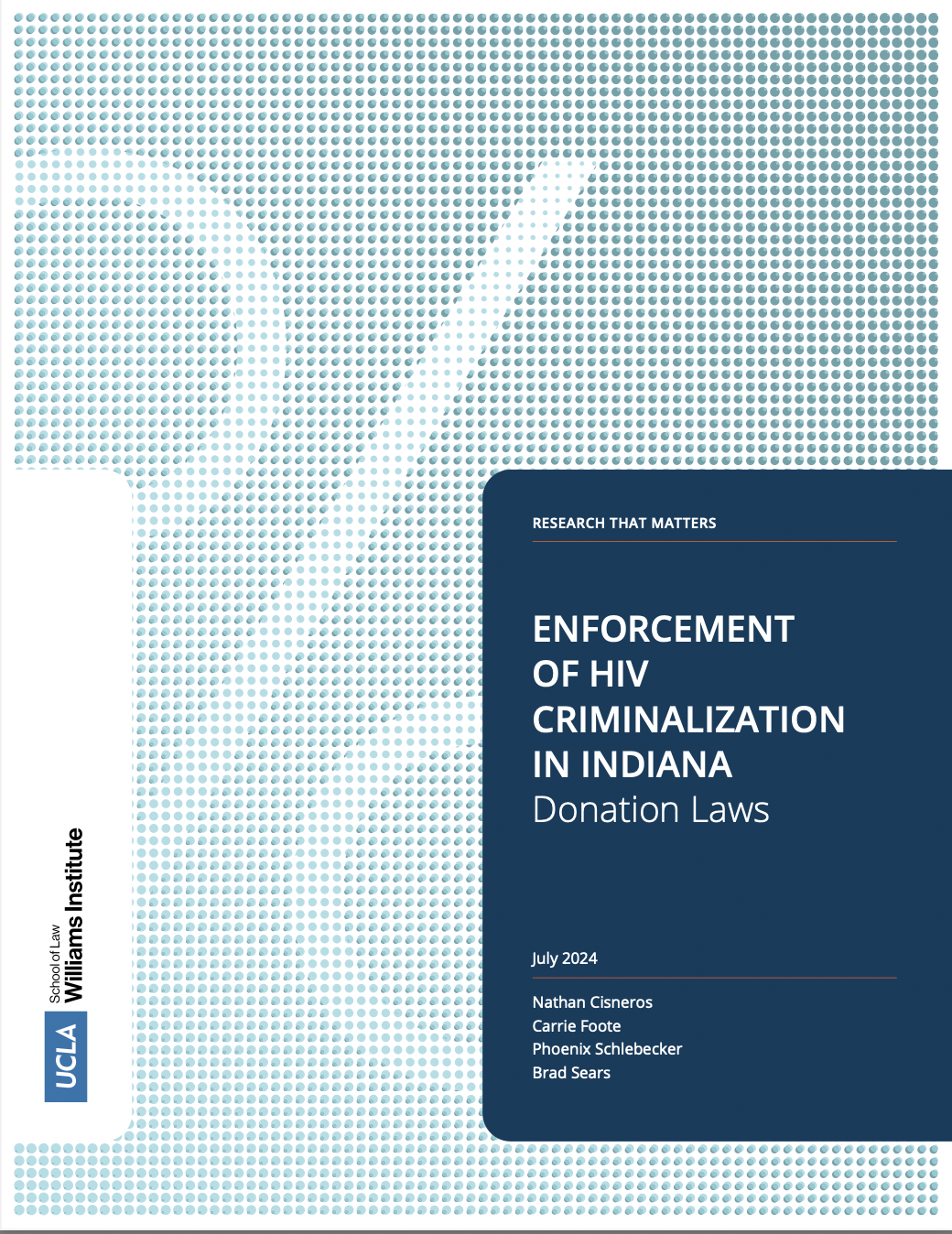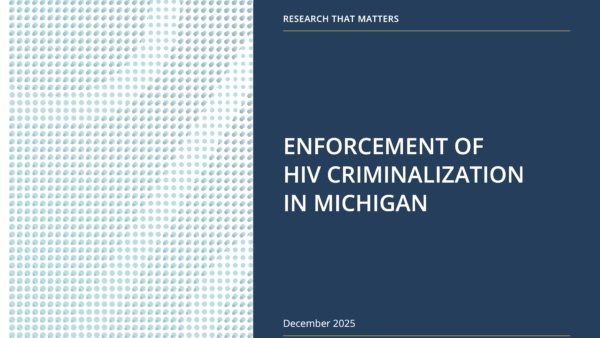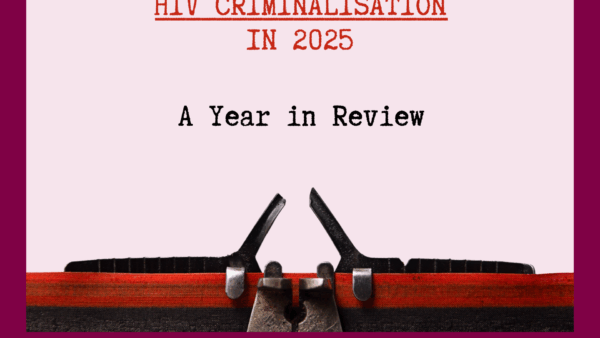
Enforcement of HIV Criminalization in Indiana: Donation Laws
The Williams Institute analyzed data from the Indiana courts regarding individuals arrested and prosecuted for an HIV-related donation crime in that state. Indiana has six laws criminalizing people living with HIV (PLWH), spanning the criminal code and public health code. This report—one in a series examining HIV criminalization in Indiana—analyzes the enforcement of two laws that criminalize the donation of blood, plasma, and semen for artificial insemination if the person knows they have HIV:
- Indiana Criminal Code § 35-45-21-1 Transferring Contaminated Body Fluids (enacted in 1988)
- Indiana Health Code § 16-41-14-17 Donation, Sale, or Transfer of HIV Infected Semen; penalties (enacted in 1989)
The data were obtained between January 2022 and March 2024 and cover enforcement of the laws between 2001 and 2023. We identified 18 unique individuals charged with 21 violations of the state’s criminal donation law related to HIV, resulting in 18 court cases. While other states have similar HIV-related criminal donation laws, Indiana had the greatest number of convictions under a donation law documented in a single state.
Key Findings
- Indiana’s HIV-related donation crimes were created nearly four decades ago (1988 and 1989) before effective and easily accessible testing and treatment for HIV was available.
- All 18 cases stemmed from an attempt to donate at a plasma center.
- No cases (0) involved attempts to donate whole blood or semen.
- No people (0) were charged under the provision of the code penalizing actual HIV transmission.
- Marion County—home to Indianapolis, the state capital and largest city—was substantially overrepresented in arrests: it accounted for about 14% of the state’s population and 41% of PLWH in 2021 but nearly 80% of all donation-related arrests. Only three other counties had arrests.
- Alleged violations of the donation laws regularly occurred between 2001 and 2018, with the most recent arrest happening in 2019 for an incident in 2018. On average, one court case was filed per year for an alleged violation of Indiana’s HIV blood donation law during this time period.
- The demographic data reveal that:
- The range for age at time of arrest was between 20 and 58 years old; the mean (average) age at time of arrest was 33 years old.
- Men were 72% of people arrested while women were 28%.
- Black people were nearly eight in ten (78%) of all people arrested. White people were the remainder (22%) of those arrested. However, Black people were only 38% of PLWH in Indiana in 2021 and just 10% of the state’s population. No other race/ethnicity group was represented among those arrested.
- In total, 17 of the 18 people charged were found indigent and assigned a public defender.
- More than four-fifths (89%) of people arrested were convicted of at least one HIV-related crime.
- The Indiana Department of Health (IDOH) devoted resources to determining whether a possible crime was committed—a public health investigator (PHI) routinely referred cases to law enforcement and provided them with personal HIV information in accordance with IDOH policy at the time.
- • The criminal law has not been enforced since the last court case was filed in 2019, suggesting a recent decline in the use of Indiana’s HIV-related donation crime laws.
To our knowledge, this report is the first comprehensive look at the enforcement of HIV criminal donation laws in a single U.S. state, and it demonstrates one of the highest levels of enforcement observed in any state to date.
This report found that people who know they have HIV can, and have, been prosecuted under Indiana’s HIV criminalization donation laws for acts that pose no HIV transmission risk. Because of universal screening for HIV antibodies, donated blood, plasma, and semen are now safe from HIV for recipients. Moreover, plasma—which represented 100% of attempted donations in this study—is heat treated, which inactivates all bloodborne pathogens, including HIV. There has not been a reported case of HIV transmission from plasma donation in nearly 40 years. Yet, as recently as 2019, Indiana arrested, prosecuted, and convicted a person for attempting to donate at a plasma center in the state.
Further, HIV criminalization laws could undermine the state’s efforts to work cooperatively with the communities most impacted by the HIV/AIDS epidemic. In recent years, there has been growing consensus among public health and medical experts that ending the HIV epidemic requires modernizing a state’s HIV criminal laws to reflect what is known about HIV science today. Indiana’s own statewide plan to end the HIV epidemic in the state by 2030, called Zero is Possible, includes criminal law modernization as one of the current approaches and priorities. The plan echoes the Centers for Disease Control and Prevention (CDC) and the White House’s Office of National AIDS Policy (ONAP) position on HIV-specific criminal laws, both of which call on states to modernize their HIV criminal laws to reflect advances in treatment and what we know today about how HIV is—and is not—transmitted.









